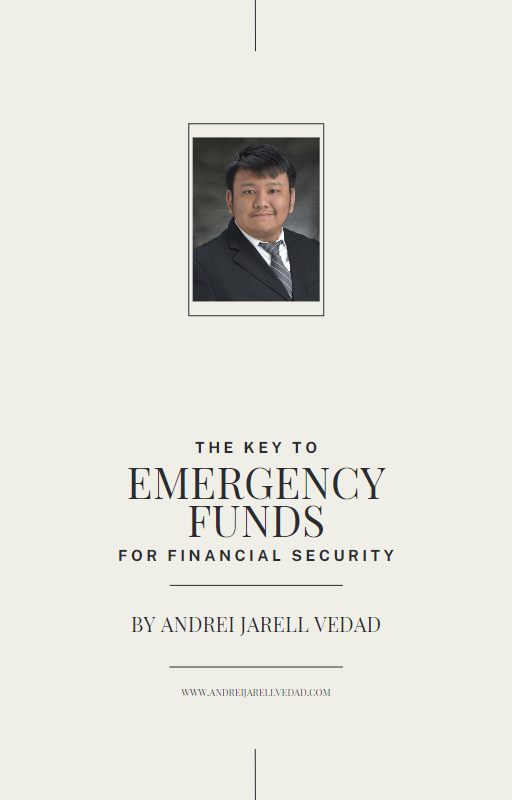
Table of Contents
Introduction
Working in a high-stress workplace can harm your mental health, especially in the Philippines, where work demands can be challenging. It can lead to burnout, anxiety, and depression over time, affecting your overall well-being on and off the job.
This article will give you some tips and strategies to help maintain good mental health while working in such environments in the Philippines. We’ll start by defining what a high-stress workplace is and why it can be harmful to your mental health. Finally, we’ll summarize the main points of this article.
So, let’s get started!
What constitutes a high-stress work environment?
Working in a high-stress work environment can cause employees to feel pressured, anxious, and overwhelmed. This type of work environment can include factors such as working long hours, having tight deadlines, managing a heavy workload, lacking support or resources, facing interpersonal conflicts, or being part of a highly competitive culture.
Why high-stress work environments can be detrimental to mental health?
When people experience long-term stress in the workplace, it can harm their mental health and contribute to problems such as exhaustion, anxiety, and depression. Furthermore, stress can worsen physical health issues and increase the chances of chronic diseases like diabetes and cardiovascular disease.
This article will provide you with helpful tips and techniques to manage stress and maintain good mental health while working in a high-pressure environment in the Philippines. We’ll go over ways to recognize your stressors, develop a self-care routine, practice mindfulness, establish boundaries, and look for support. By taking these measures, you can prioritize your mental health and thrive in your profession despite the difficulties.
Understand your stressors
To manage stress and maintain good mental health in a high-stress work environment in the Philippines, it’s important to understand what stressors are and how they can affect you. Stressors are anything that triggers your body’s stress response, which can cause physical and emotional reactions that make it hard to do your best work.
Common stressors in the workplace in the Philippines may include:
- Long hours
- Heavy workloads
- Difficult coworkers or bosses
- Deadlines
- A lack of resources or support
- A highly competitive work culture
Other personal factors, such as financial stress, relationship problems, or health concerns, can also contribute to feelings of stress and overwhelm.
To identify your personal stressors, try these strategies:
- Keep a stress journal for a week or two. Write down what you’re doing, thinking, and feeling throughout the day, along with any physical symptoms you experience. Look for patterns and triggers that may be causing you to feel stressed or anxious.
- Talk to a trusted friend, family member, or mental health professional about your stressors and how they’re affecting you.
- Take breaks throughout the day to reflect on your thoughts and emotions.
- Practice mindfulness or meditation to increase your awareness of your stressors.
- Use stress tracking apps or tools to monitor your stress levels and identify patterns.
Once you’ve identified your stressors, you can take steps to manage them and prioritize your mental health in a high-stress work environment in the Philippines.
Create a self-care routine
Self-care involves taking deliberate actions to take care of your mental, emotional, and physical health. When working in a high-stress environment in the Philippines, it’s essential to prioritize self-care to prevent burnout, exhaustion, and decreased mental health. Incorporating self-care practices into your daily routine is an important step in maintaining good mental health and managing stress.
Here are some examples of self-care practices that can be incorporated into your daily routine:
- Getting enough restful sleep
- Eating a healthy and balanced diet
- Regular exercise or physical activity
- Mindfulness or meditation practices
- Spending time in nature
- Engaging in relaxing hobbies or creative activities
- Spending time with loved ones or engaging in social activities
Making self-care a priority may be difficult when work is busy, but it’s crucial to dedicate time for yourself every day.
Here are some tips for making self-care a priority in a high-stress work environment:
- Schedule self-care activities on your calendar or planner
- Start small by adding one or two self-care practices into your routine first
- Set boundaries around your work schedule to make time for self-care
- Find an accountability partner or support group to stay motivated and committed to your self-care routine
By creating a self-care routine that works for you, you can prioritize your mental health and manage stress effectively in a high-stress work environment in the Philippines.
Practice mindfulness
Mindfulness means paying attention to the present moment without judging. It can help lower stress, improve focus, and support overall mental health, especially when working in a high-stress environment in the Philippines.
Here are some tips to bring mindfulness into your busy workday:
- Take short breaks throughout the day to focus on your breathing and clear your mind.
- Practice deep breathing or guided meditations during your lunch break or any other downtime.
- Use mindfulness apps or guided meditation podcasts to help you stay focused and calm during the workday.
- Make an effort to focus on the present moment and avoid worrying about future tasks or past mistakes.
Here are some examples of mindfulness practices you can do at work:
- Practice mindful breathing exercises for a few minutes each hour.
- Take a short walk outside and focus on the sights, sounds, and smells around you.
- Take a few moments to focus on your senses, such as the taste of your food or the feel of your hands on your keyboard.
By making mindfulness part of your daily routine, you can reduce stress and maintain good mental health while working in a high-stress environment in the Philippines.
Set boundaries
When working in a high-stress environment in the Philippines, it’s important to set boundaries to protect your mental health. This means setting limits on the amount of time and energy you devote to work and prioritizing your own well-being.
Some tips for setting boundaries with colleagues and supervisors may include:
- Communicating your needs clearly and assertively, while still being respectful and professional
- Negotiating a workload or schedule that works better for you and your mental health needs
- Saying “no” when you feel overwhelmed or when a task does not align with your values or priorities
- Avoiding overworking or taking work home with you
Strategies for prioritizing your own mental health when work demands are high may include:
- Scheduling regular breaks throughout the day to rest and recharge
- Practicing stress-reducing activities such as exercise or hobbies outside of work
- Engaging in social support with family, friends, or colleagues who understand your situation and can offer emotional support
- Seeking professional help if necessary, such as counseling or therapy
By setting boundaries and prioritizing your own mental health, you can reduce stress and maintain good mental health in a high-stress work environment in the Philippines.
Seek support
Seeking support for your mental health is important, especially when working in a high-stress environment in the Philippines. It’s important to remember that seeking help is a sign of strength, not weakness.
There are several resources available for mental health support in the Philippines, including:
- National Center for Mental Health (NCMH)
- Philippine Mental Health Association (PMHA)
- In-touch Community Services
- Department of Health Mental Health Program
- Private counseling and therapy services
If you’re struggling with your mental health, consider reaching out to these resources or a mental health professional for help.
It can also be helpful to talk to colleagues and supervisors about your mental health struggles, as they may be able to provide support or accommodations to help you manage stress.
When talking to others about mental health, it’s important to:
- Use “I” statements to communicate your feelings and needs
- Avoid blaming or accusing others
- Emphasize that seeking help is a normal and healthy part of taking care of oneself
By seeking support and reaching out for help when needed, you can better manage stress and maintain good mental health in a high-stress work environment in the Philippines.
Conclusion
In conclusion, working in a high-stress environment can take a toll on your mental health, but there are strategies you can use to maintain good mental health and wellbeing. By understanding your stressors, creating a self-care routine, practicing mindfulness, setting boundaries, and seeking support, you can better manage stress and prioritize your mental health in the workplace.
It’s important to remember that mental health is just as important as physical health, and taking care of yourself is necessary for overall wellbeing. Don’t be afraid to prioritize your mental health, even when work demands are high.
I hope this article has provided you with useful tips and strategies for maintaining good mental health in high-stress work environments in the Philippines. Remember to take care of yourself and seek help when needed. With the right tools and support, you can thrive in your work and maintain good mental health and wellbeing.
Disclaimer
I am not a mental health professional. The information provided on this website is for educational and informational purposes only and is not intended to be a substitute for professional mental health advice, diagnosis, or treatment. Always seek the advice of your mental health provider or other qualified health provider with any questions you may have regarding a mental health condition. Never disregard professional mental health advice or delay seeking it because of something you have read on this website. Reliance on any information provided by this article is solely at your own risk.
Get My E-books For Free!


Take control of your financial future and download my e-books: “Ways to Secure Your Finances Right Now” and “The Key To Emergency Funds For Financial Security” today! This comprehensive guides are packed with practical strategies and expert advice to help you achieve financial security and improve your financial literacy.
By subscribing to my Substack Newsletter, you’ll gain access to exclusive content, regular updates, and valuable insights on personal finance. You’ll stay informed about the latest financial trends, investment opportunities, and money-saving tips.
Don’t miss out on this opportunity to equip yourself with the knowledge and tools needed to secure your financial future. Join our community of motivated individuals who are committed to achieving financial freedom and success.
Subscribe to my Substack Newsletter today and get instant access to the e-book “Ways to Secure Your Finances Right Now.” Take the first step towards a brighter financial future. Your journey to financial security starts now!
Affiliate Links Disclaimer
My blog posts contain referral/affiliate links, so I can potentially earn via commission. It would help me a lot when you use my referral/affiliate links

Andrei Jarell Vedad is a passionate financial literacy advocate from the Philippines. With a background in Information Technology and currently pursuing a law degree, Andrei combines his knowledge and expertise to empower individuals in managing their personal finances. Through his blog and extensive research, he shares practical tips, strategies, and thought-provoking articles to help readers make informed financial decisions and achieve their financial goals. With a global perspective, Andrei aims to inspire positive change and foster financial well-being, not only in the Philippines but also worldwide.


